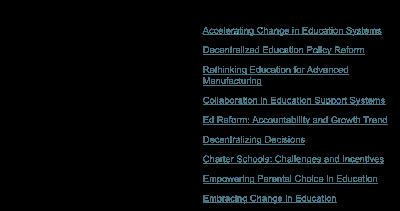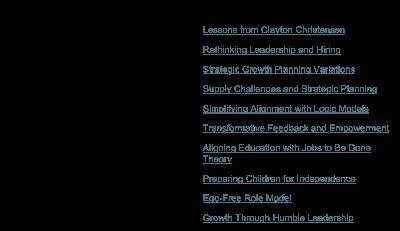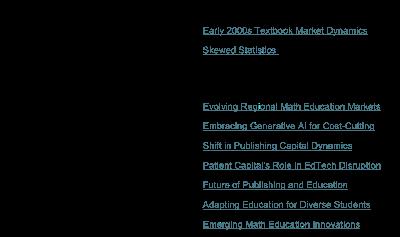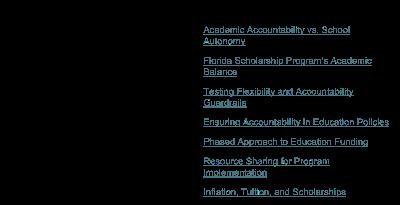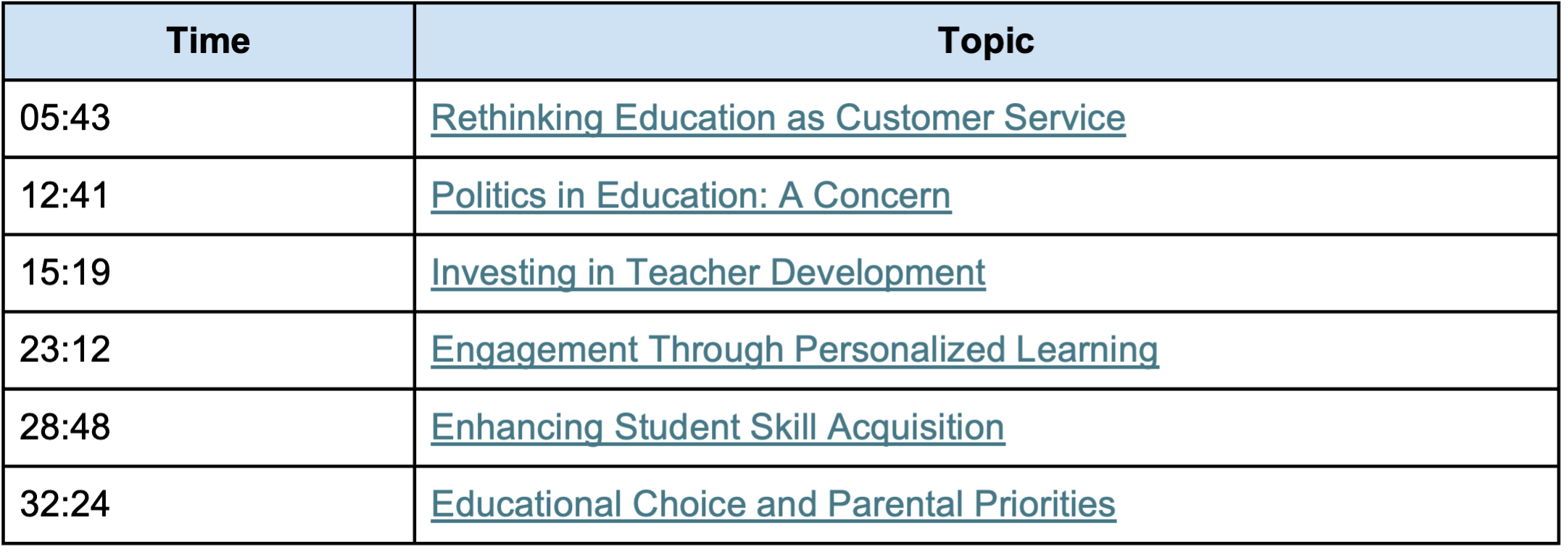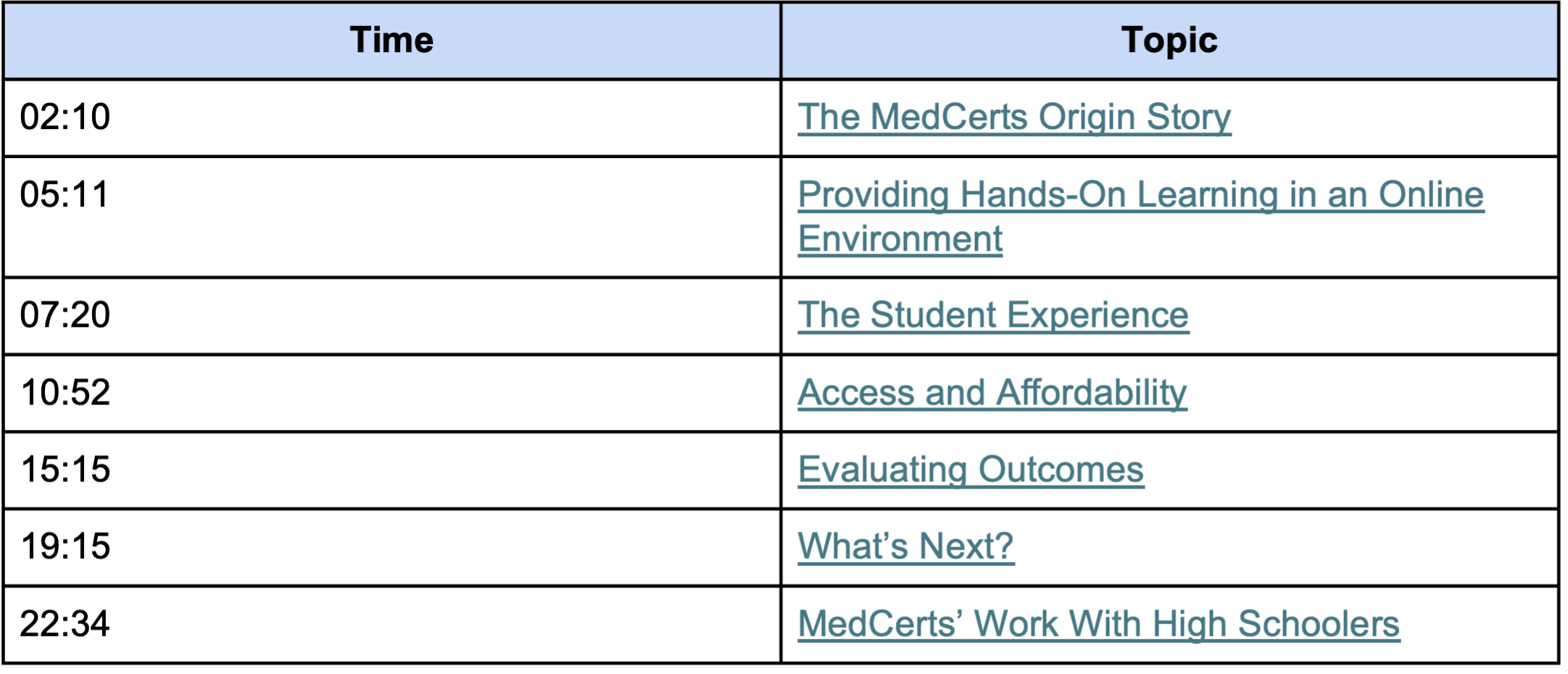Why This Leader Argues that Embracing School Choice Is Imperative for Students—and Democrats
Description
Jorge Elorza, the former mayor of Providence and now CEO of Democrats for Education Reform (DFER), joined me to talk about why it’s imperative in his view to support educational choices for families. Jorge talked about his own struggles as a high school student to becoming a law professor. He explained why he thinks that Democrats have lost their way on education reform, the role of governors and other executives in setting a bold education agenda, and the importance of innovations that empower families and bottoms-up solutions, such as education savings accounts and microschools—as well as how the concept of choice aligns with progressive values. The conversation was fascinating—and frankly the only downside to it was some Internet challenges that occurred during it. Despite those interruptions, I think you’ll enjoy the dialogue. I learned from it—and as always, you can read the transcript for anything that’s hard to hear.
Michael Horn:
Welcome to the Future of Education. I'm Michael Horn. And you're joining the show where we are dedicated to creating a world in which all individuals can build their passions, fulfill their potential, and live lives of purpose, which sadly today remains not the case. But we keep working toward it. And to help us think through that, I'm really excited, actually, for this episode because we have Jorge Alorza, who's the CEO of Democrats for Education Reform. When I got into the world of education, DFER was like it. It was something that we paid a lot of attention to, really excited about. And then Jorge, as you'll hear, wrote a series of pieces, actually, that have caught my attention with the ideas expressed in them and given interviews and so forth to that effect that I thought, hey, something interesting is happening here and important that I want to drill into and understand more. So, Jorge, huge thanks for joining me. Welcome.
Jorge Elorza:
Yeah, it's great to be on here. Thank you for having me.
Jorge’s Journey to the Work
Michael Horn:
Yeah, yeah, you bet. So as I started to allude there, there's a lot of substance that I want to get into. But before we go there, I actually want to start with the personal side of your story and namely your own journey and the path to becoming CEO of Democrats for Education Reform. Because I suspect that the path is not one that know from the outside. People would say, oh, yeah, that tracks. You know, law school professor, mayor of Providence, then CEO of dfer. Talk to us about how you see that journey and how it's made sense from your perspective and in your own personal story.
Jorge Elorza:
Thank you, Michael. So, yeah, if I can, of all places, let me start at the beginning. I'm the son of immigrants, and in my household, from my earliest memories, it was always education, education, education. And, you know, I'd love to say, Michael, that I was that kid that always listened to mom and did the right thing, but I was a bit of a dunce, barely graduated from high school. And, you know, one of the most pivotal moments in my life came my high school graduation. So I barely graduated. I found out I was graduating a week and a half before graduation day. And I'm sitting there, all my friends are celebrating with their families. They're going off to school. I had gotten rejected from everywhere that I applied to. My life was going nowhere. And I had one of those moments where I asked myself, what am I doing? You know, my parents had sacrificed so much. I had let sacrifice blow in vain. And I resolved that I was going to do what I could to turn things around. And it was education that turned my life around. I enrolled at community college. That led me. Then I got a scholarship that it got inner city kids into the state school. That's what got me to college. And then from there, I went to law school, and that set me on this track. So education has always been a core part of, like, who I am and what I believe in. And so I practiced for two years as an attorney, and then I became a law professor. I thought I was going to do that for the rest of my life. I was doing the publishing thing. I had gotten tenure, but there was always an itch to keep one foot in the real world. Right. In the world of doing.
Michael Horn:
Yeah.
Jorge Elorza:
And I was literally minding my business when, you know, the opportunity to run for mayor came up. Folks started approaching me, and at first I was not interested at all, and.
Michael Horn:
But then actually pause there for one second, like, why were they tapping you to run for mayor? Because, like, that doesn't just happen unless you're involved in the community and people see something in you. Right.
Jorge Elorza:
I think a lot of different things. You know, my. My background. I also happen to have a very similar profile to the person who was mayor before me. And so people made a connection. And when I started to see the impact you can have to, you know, move the needle in schools, that's when I got really excited. The interest of. Interested in jumping into the race. And so that's what I did. I jumped into the race. And to be honest with you, I had never been involved in politics, so I wasn't sure or I know what I was jumping into. But sometimes you got to shoot your shot, Trust that you'll figure it out as you go. And that's exactly what I did. I got elected, got reelected, and set out to work on a race, including trying to fix our schools here in Providence.
Michael Horn:
Wow. Wow. And then from there, you finished the time as mayor in 2023, I think it is. And, you know, how does the DFER opportunity come about?
Jorge Elorza:
Yeah. So, you know, I got to tell you that when I first became mayor, I can't say that I came into office waving the ed reform flag, because the truth is, I didn't even know what ed reform was. But, you know, my goal was to fix the traditional public schools where 90% of the kids studied. And over time, you know, I. I came to see just the challenges of reforming these large bureaucratic systems. And over time, I came to believe in and embrace alternatives to the traditional system. So that by the time I left office, I was fully waving the ed reform flag and, you know, calling for the entire district to be charterized here in Providence.
Michael Horn:
Wow.
Jorge Elorza:
And so, and so, you know, I transitioned to the mayor's office. I was term limited. And I remember someone sent me the job posting for DFER that I had never heard of. And I mentioned that to my wife who comes from the ed reform world. And when I told her Democrats for Education Reform, she says, what DFER? And her eyes lit out and she said, you have to look into that. You'll love it. And that started the process. I applied and here I am.
Democrats’ School Choice Imperative
Michael Horn:
Amazing. Amazing. All right, so you get there to, you become CEO. And it feels like to me, the landscape in which DFER was operating at the time you became CEO and it's cloud even felt like very different from say, 15 years earlier when my first book had been published, Disrupting Class. How would you describe the environment in which DFER was operating when you became CEO and sort of its place, if you will, in the ecosystem at that time?
Jorge Elorza:
Yeah, it was a different reality. So DFER was created to, of course, always help policymakers policy wise and politically. And so much of how we operated worked on the assumption that Democrats actually wanted to get something done. But when I came into office, I'm sorry, when I took this position, it had been 10 years since there had been any kind of executive Democratic leadership on education. And so in those intervening 10 years, with the exception of Polis, who, you know, I'm the biggest fan of, with the exception of Governor Polis, there was no executive leadership on education on the left. And so, you know, we had state chapter strategy and approach. And I give a lot of credit to the people who ran those chapters within their state houses. They found places of opportunity. But as everyone who does advocacy will tell you, even under the best of circumstances, it's hard to move good policy. But if the executive is not behind it, it's almost impossible to do meaningful change. And so as an organization, we've taken a step back and, you know, we've been engaging much more with executives. Our theory of change today is that executives are the most important policymakers. They are the ones that set the agenda. They provide the policy guidance, they provide the political cover. And we're working with gubernatorial candidates throughout the country, several sitting governors as well. And what we're trying to do is as much as possible, give them political cover where they need it, but also help them see the opportunities both political and policy wise of embracing a strong reform agenda.
Michael Horn:
Yeah, no, it's a really good point. It's the one I hadn't even thought about in terms of the vacuum that had sort of appeared in the Democrats. But you know, compared to 10 years ago. And Governor Polis is a very good example of someone who is still a stalwart, you know, incredible leader obviously on the issue and to trace back to his own professional background right in the space as well. Of course, in that case, I, I want to jump in then to where you've been leading the organization from a policy and, and sort of what do you put in place standpoint. And you've written a few things that I think have turned some heads and, and, and we'll link to one of them in the transcript in the show notes here. It was a piece on the DFER website titled “It's Time for the Left to Come to the School Choice T






